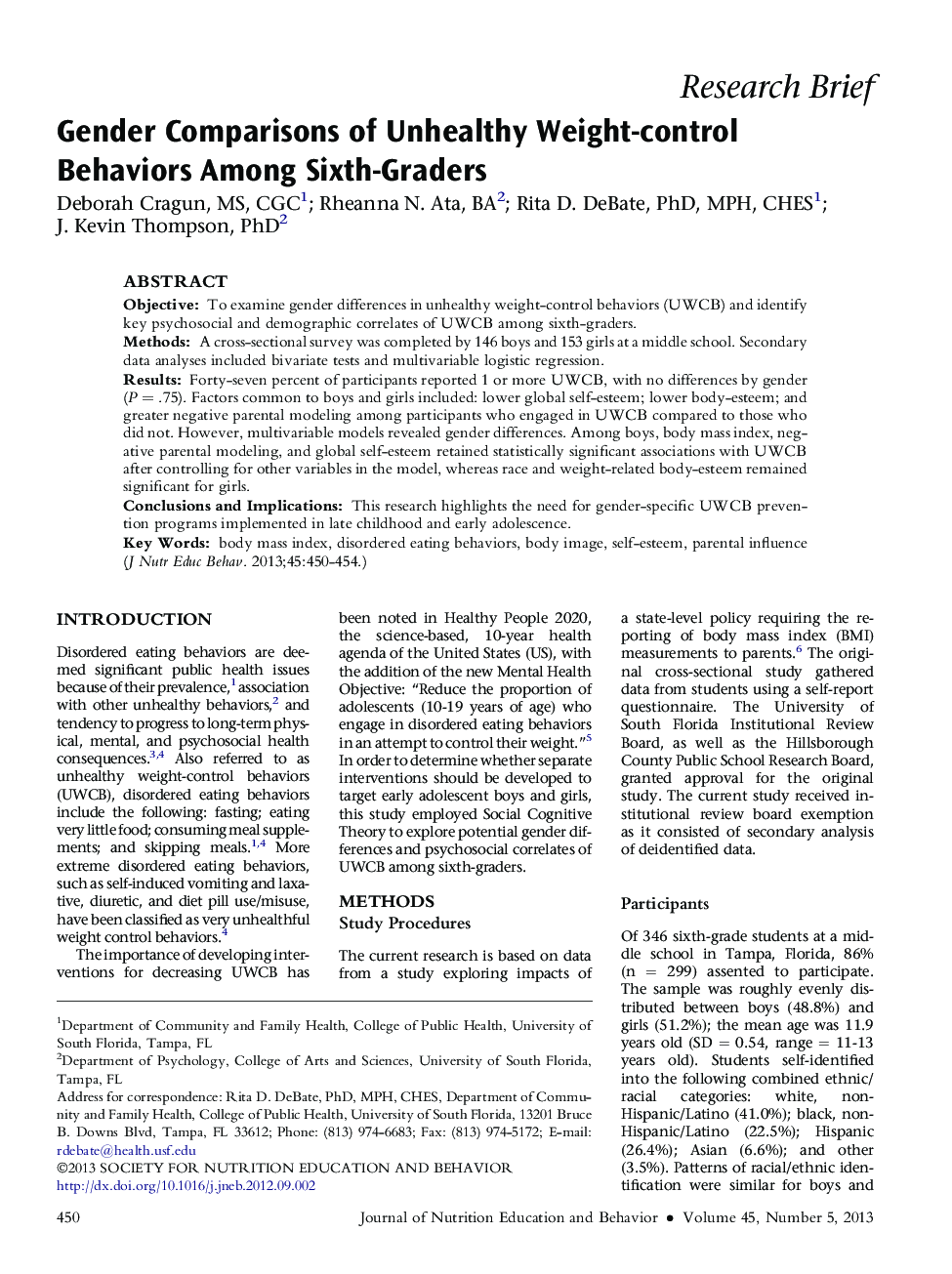| Article ID | Journal | Published Year | Pages | File Type |
|---|---|---|---|---|
| 361277 | Journal of Nutrition Education and Behavior | 2013 | 5 Pages |
ObjectiveTo examine gender differences in unhealthy weight-control behaviors (UWCB) and identify key psychosocial and demographic correlates of UWCB among sixth-graders.MethodsA cross-sectional survey was completed by 146 boys and 153 girls at a middle school. Secondary data analyses included bivariate tests and multivariable logistic regression.ResultsForty-seven percent of participants reported 1 or more UWCB, with no differences by gender (P = .75). Factors common to boys and girls included: lower global self-esteem; lower body-esteem; and greater negative parental modeling among participants who engaged in UWCB compared to those who did not. However, multivariable models revealed gender differences. Among boys, body mass index, negative parental modeling, and global self-esteem retained statistically significant associations with UWCB after controlling for other variables in the model, whereas race and weight-related body-esteem remained significant for girls.Conclusions and ImplicationsThis research highlights the need for gender-specific UWCB prevention programs implemented in late childhood and early adolescence.
